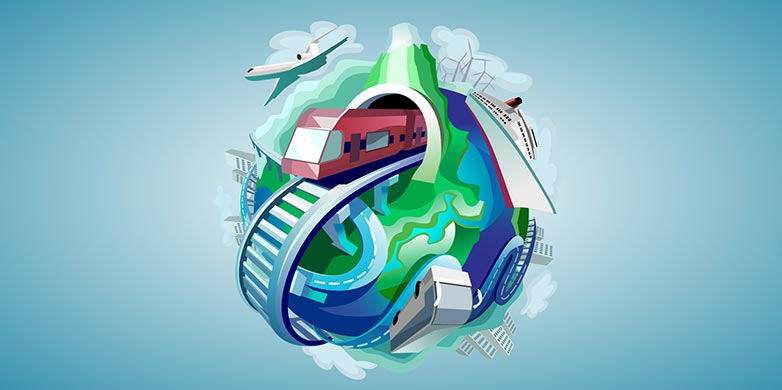With joy to sustainable mobility
We travel to the most remote corners of our planet. For the sake of the climate, the environment and ourselves, sustainable mobility is desirable, writes guest author Monika Hardmeir, in her attempt to promote a playful rethinking.
Yesterday, the Energy Efficiency Challenge team competition has begun. It is all about mobility. Anyone travelling with the use of an engine, needs energy, which is predominantly produced from fossil fuels and therefore from non-renewable raw materials. About one third of total energy consumption in Switzerland is related to transport.
Studies show that only about 32 per cent of the distances covered are work-related. With a total of 56 per cent of leisure and shopping traffic, non-work-related transport has more weight when it comes to impact. At the same time, recreational and leisure facilities are often very close.
What can I do?
We can optimize our mobility behaviour in two ways: on the one hand, by changing our way of getting around and, on the other hand, by keeping our travel distance as short as possible. For example, it makes sense to jog in the nearby woods instead of paying to go to a gym. When it comes to short distances, you can have a positive impact walking or cycling, helping not only the environment but also improving your own fitness levels. For longer distances, one can take the train or carpool with work colleagues.
What do I get out of this?
Time-consuming and polluting business trips by plane or car can often be replaced without significant disadvantages through video conferencing. Such a rethinking would benefit everybody - or just imagine what it would be like if we all took the train in the morning while enjoying our newspaper instead of being annoyed during rush hour by the noise and stressed out from the all the hustle and bustle.
How much money could be saved and invested in sustainably produced food or renewable energy if we gave up our motor vehicles? Recent studies show that rethinking and changing with a playful approach is easier than we think (see my column of 8 April 2014) . That is our guiding principle in the EE Challenge: the actions proposed on the platform aim to support environmentally friendly mobility without drawbacks and provide a lot of joy in sustainable living.
Sources and Information
For further information about sustainable Mobility:
- SSHE: Results of the Survey on Business Flights and Videoconferencing, RUMBA, May 2012
- EnergieSchweiz: external pagewww.energieschweiz.ch/de-ch/mobilitaet/mobilitaetsverhaltencall_made(Website in German, French and Italian)
- weAct: external pagewww.weact.chcall_made
For further information about the EE Challenge and the team competition, please go to:
About the author
Monika Hardmeier studied psychology at the University of Zurich from 2011 to 2012 before starting her studies in Health Sciences and Technology at ETH Zurich in 2012. After participating in a weACT Challenge in spring 2013 for the first time, she has since been involved in the weACT Students Association. She has been actively supporting the organization of the EE Challenge. She also written external pageblog postscall_made for NZZ campus.

